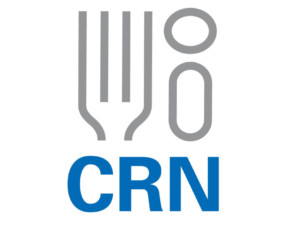
The American Natural Merchandise Affiliation (AHPA), the Council for Accountable Vitamin (CRN), the Client Healthcare Merchandise Affiliation (CHPA) and the United Pure Merchandise Alliance (UNPA) despatched a joint letter to the Inner Income Service (IRS) to acquire protection for dietary dietary supplements beneath Versatile Spending Accounts (FSAs) and Healthcare Financial savings Accounts (HSAs).
There’s additionally a separate letter from the Pure Merchandise Affiliation (NPA).
The joint letter from AHPA, CRN, CHPA and UNPA requests the IRS revise its Publication 502 to learn: “You’ll be able to embody in medical bills the price of dietary dietary supplements, supplied that such merchandise meet the definition of a dietary complement as outlined in part 201(ff) of the Federal Meals, Drug, and Beauty Act (21 U.S.C. 321(ff)) and are labeled with Complement Info labels which are compliant with federal laws for these merchandise.”
In accordance with the associations, the joint letter asks the IRS to “acknowledge all merchandise lawfully marketed as a dietary complement with a Complement Info field as medical bills.” The NPA letter would restrict what might be reimbursed to solely these merchandise that comprise a structure-function declare or a U.S. Meals and Drug Administration (FDA)-authorized well being declare.
The associations said that the broader language is cleaner and simpler for retailers and plan directors to implement. If the product has a “Complement Info” panel, it’s lined and the shop doesn’t have to know what a “well being declare” or “structure-function declare” is to know if the product might be reimbursed.
It additionally covers all the class of dietary dietary supplements, these merchandise “supposed to complement the eating regimen” whether or not by “diet or supplementing with herbs and different elements.”
“Some generally used dietary dietary supplements wouldn’t have a well being declare or a construction/operate declare on the label. For instance, many ‘letter vitamin’ and mineral merchandise (paradoxically, those most acquainted to shoppers and with lengthy histories of use) are marketed and labeled solely on the power of the ingredient title. Why would we exclude gadgets like vitamin C or magnesium (simply because they don’t have a declare on the label) that buyers have relied on for many years?” the associations wrote.
The associations argued the restricted language would make it straightforward to avoid how merchandise are lined. Merchandise that don’t have a “well being declare” or “structure-function declare” might add a declare to the label, making them eligible, so there can be no price financial savings for the federal government by limiting the allowed dietary supplements.
“If the motivation is to slender the allowable merchandise to extra mainstream dietary dietary supplements, that method additionally has the other impact. Dietary supplements which are thought of ‘fringe merchandise’ as a result of they make claims for sexual operate, unrealistic weight reduction, or explosive muscle development all comprise structure-function claims, albeit they is probably not supportable or substantiated with credible science. Nevertheless, they’d nonetheless be lined beneath the extra restrictive language as a result of they comprise a structure-function declare,” the associations wrote.
For extra data, go to www.ahpa.org, www.crnusa.org, www.chpa.org or www.unpa.com.



![[Sponsored Video] LJ100® Tongkat Ali Powers Testosterone in Males, Progesterone in Ladies!](https://fitnessclerk.com/wp-content/uploads/2025/09/vre-nie-npr-2025-09-video-hp-ingredients-350x250.jpg)






